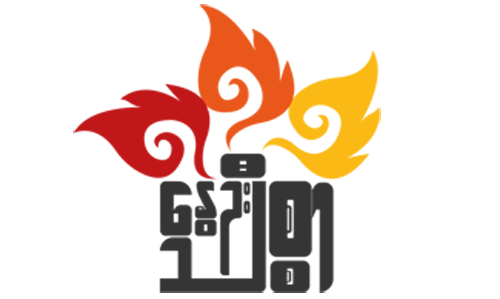MoeMaKa February 13 2023
Union and Federal
Since Myanmar’s independence from the British colonial rulers, the country has been plunged into the mire of civil war. Just over a year after independence, the flames of civil war began to burn due to ideological differences among the Fasapala, nationalists, socialists, and communists; the belief that independence from the British was not truly achieved because it was granted; and the absence of guarantees for ethnic groups, such as the right to self-determination and equal rights.

Although the armed conflicts between FASPA and Red Flag Communist, as well as between FASPA and White Comrade or White Flag Communist, were not based on ethnic issues, the KNDO group led by Saw Ba Oo Gyi emerged based on the principles of ethnic equality, self-governance, and the right to self-determination.
Unfortunately, in Myanmar’s history, the civil war started with independence. After the emergence of various groups such as the Communist Party, KNDO, and the White Comrade, many areas of Myanmar were seized and controlled by various armed groups. It was in the years 1949/1950 that the Fasapala government was able to dominate Yangon enough to be called the Yangon government. Some of the British colonial rulers predicted that Burma might descend into civil war after its independence.
There may be a question as to why Myanmar became embroiled in a civil war although nations like India and Pakistan, which gained independence not as long ago like Myanmar, did not fall into the mire of civil war. There were different views on how central Myanmar, which was ruled by the British as a colony since before Myanmar’s independence, the Rakhine coast, the mountainous region of Kachin State, Shan State, which was ruled by Saw Bwar (chiefs), the Karenni State, which had never been under the rule of Myanmar Kings and had only been at the stage of giving gifts, Mon, Karen, and Tanintharyi, where Karen people live, and other regions would attain independence. Organized by Myanmar’s national political leader, General Aung San, the Shan State, Kachin, and Chin people, which are the mountainous regions, signed an agreement with Burmese leaders to gain independence together with the mainland and sent it to the British.
These events are known to all, and what I want to say is that since the independence of Myanmar, there have been verbal and written guarantees on equality, the right to self-determination, and even the right to secession of the country and ethnic regions. The cause of the problem has already existed since that time, and almost 2 years after independence, the civil war broke out in full swing. When the civil war broke out after independence, it was at its peak with the spread of the area, the ability to threaten the central government, and the weapons left over from World War II. When we talk about weapons and civil war, we can’t ignore the political problem that is the main cause. In the history of ethnic group affairs, the rage of the civil war that started from the incorporation of the ethnic areas that were loyal to each other and lived independently into the country called the Union and were ruled as subordinates, has been re-ignited by the military coup, repression, and killings.
Union Day, February 12, is a day that always reminds us of equality, self-determination, and the right to govern. At a time when the civil war is on the rise again, it should be noted as a day that we should learn that the solution will be solved by establishing a true federal state, not a union state that was imposed on us, and not just a word.


